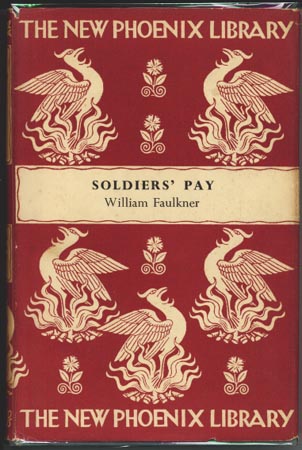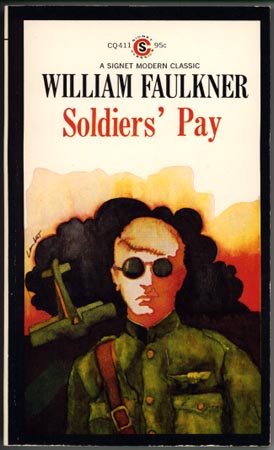

William Faulkner. Soldier's Pay. New York: Signet Books, The New American Library, 1951.
Chapter IX in Soldier's Pay begins with the sentences quoted on the back cover of this edition:
Sex and death: the front door and the back door of the world. . . In youth they lift us out of the flesh, in old age they reduce us again to the flesh; one to fatten us, the other to flay us, for the worm. When are sexual compulsions more readily answered than in war or famine or flood or fire?
These topics are indeed themes in Faulkner's novels. But in Soldier's Pay they are muted as Lieutenant Mahon fades into death and Joe Gilligan's love for Margaret Powers is gently rebuffed. The novel is one of loss, regret, and varying shades of gray. It is not "passionate," although it is "powerful."
This particular copy of the Signet first edition was originally part of Faulkner's personal library at Rowan Oak. He gave it to his stepson, Malcolm Franklin, who subsequently gave it to James W. Silver, who in turn gave it to Faulkner scholar and collector, Louis Daniel Brodsky, from whom our collector, Irwin T. Holtzman, acquired it.